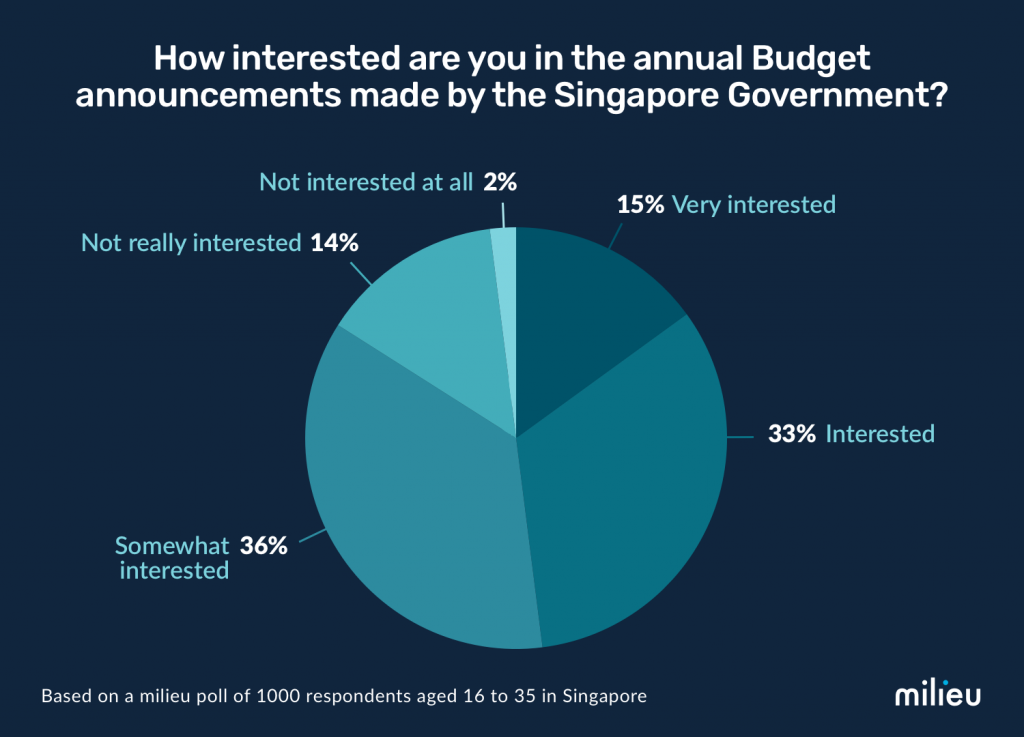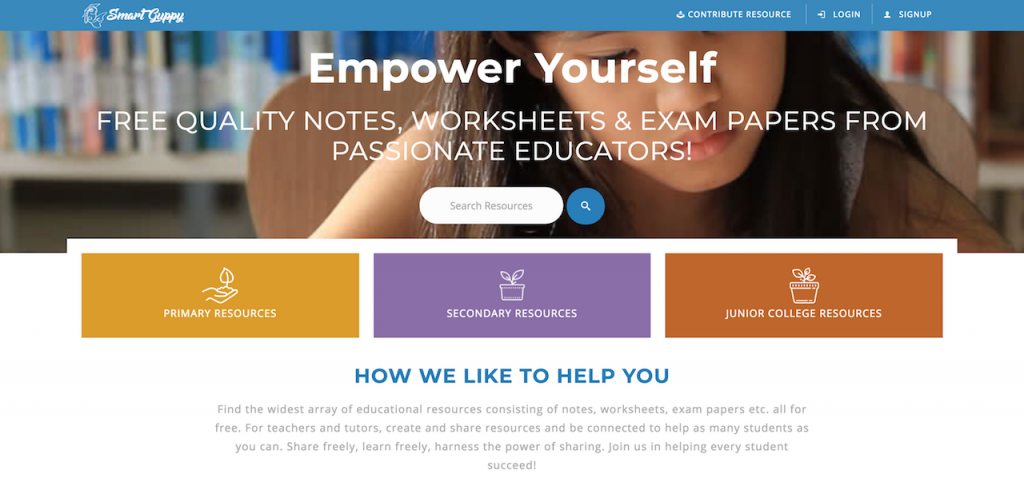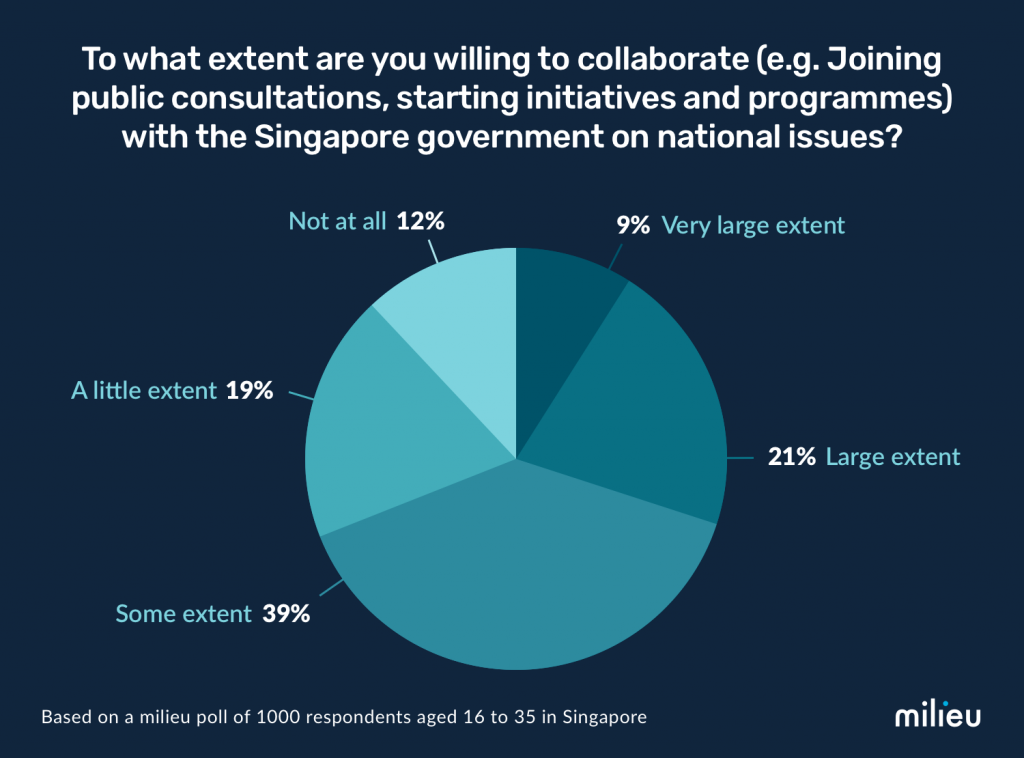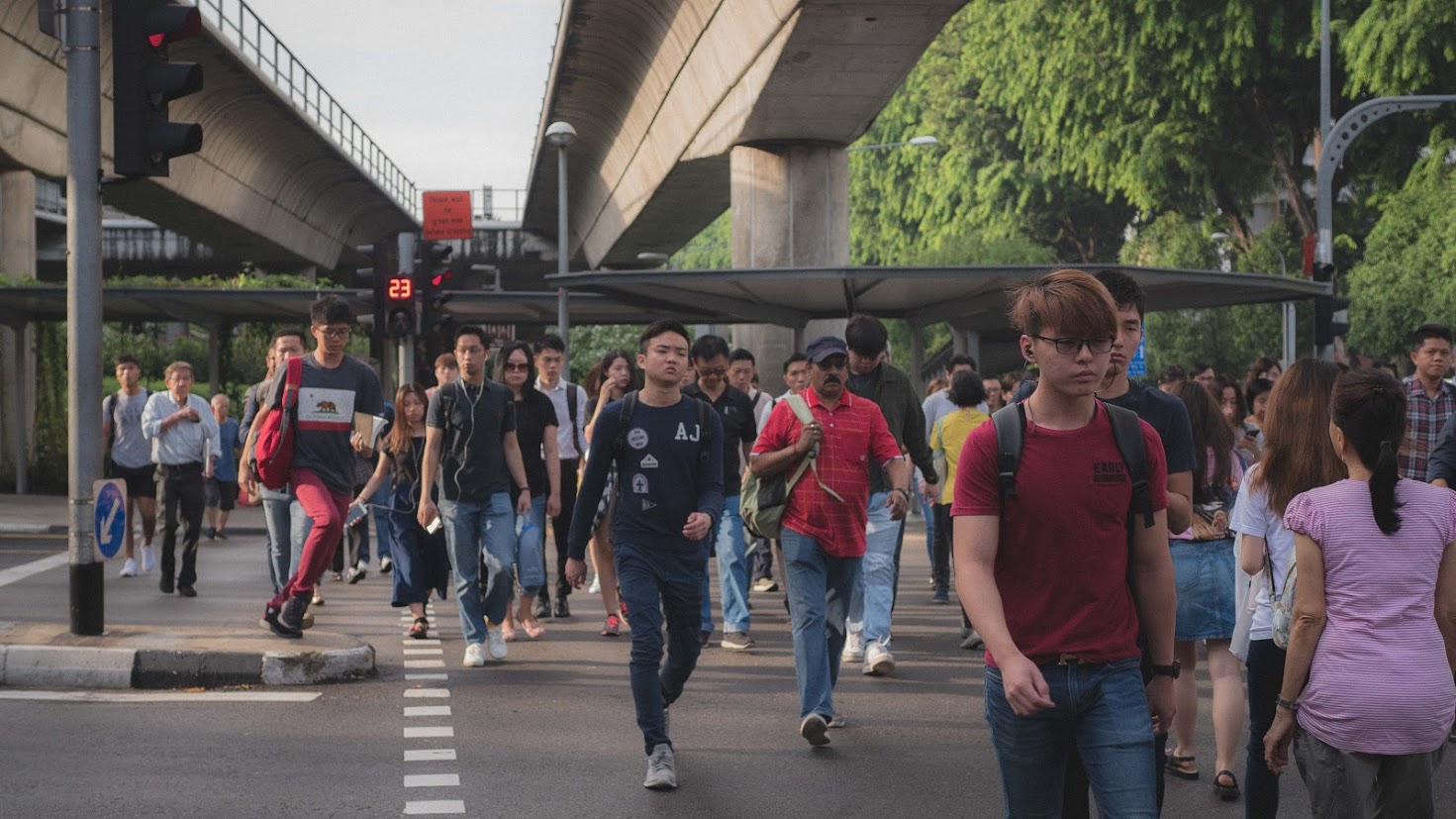

In fact, when asked where they would allocate resources if these young respondents had direct control over the Budget, the top 3 answers were: education, healthcare, and transport. Keep in mind that this was an open-ended question, so while respondents were free to fill in things like “myself” (as 0.3% did) or “me” (0.1%), the fact that 99% gave answers like “healthcare,” “low-income families,” and “the elderly” is an unambiguous sign that Singaporeans are engaged with society.
Just look at organisations like SmartGuppy, a website that aims to provide lower-income families with educational resources that they otherwise would not be able to afford; Causes for Animals, an animal welfare charity that helps abandoned or stray animals; or The Codette Project, a collective that helps female minorities enter the typically male-dominated IT sector. Notably, these are all organisations started by Singaporeans under 35.

In the same way, when Singaporeans appear to clamour for more money with each Budget, it’s perhaps not so much a desire for the thing itself but the changes it can effect. Individually, someone might need more money so that they can afford seeing a mental health professional, rather than wanting to see their bank account balance increase. On an organisational level, maybe it’s more bandwidth for SmartGuppy’s servers so that they can provide more material for needy families rather than a rosier number on their yearly financial statements.
That is not to say a more robust coffer does not help. Of course money can solve some problems.
For example, the 2017 Budget allocated $160 million to the Ministry of Health for the implementation of a 5-year Community Mental Health Masterplan. The increased funding has allowed polyclinics to expand their mental health services so that it is easier, in terms of costs and waiting time, for Singaporeans to see these professionals.
Similarly, to ensure that our workforce stays relevant in an age of technological and labour disruption, SkillsFuture was launched by Budget 2015, at a cost of over $1 billion per year (from 2015 to 2020). Countless of Singaporeans have made use of the $500 course credit and numerous other schemes to upgrade their skills or even reinvent themselves to pivot to another industry.

In the same vein, the SkillsFuture credit, though generous, is probably lying dormant in most of our accounts because, as working adults, we simply do not have the time to take up courses out of our already exhausting daily work schedule. (I’m often so tired from work that I can hardly be counted on to feed myself dinner, let alone learn Japanese or pick up baking with my SkillsFuture credits.)
Therefore, what is needed to solve Singapore’s problems is not just sound fiscal policies from the government, but also increased collaboration from youths with the government and, more crucially, active participation in society.

Or take the hypothetical cases discussed earlier. Mental health stigma prevalent among Gen-Z because of job worries? Change things yourselves by establishing a startup with a no-discrimination hiring policy, then convince other companies in the industry to adopt similar measures. When such changes gain momentum, an industry-wide ban on asking for an applicant’s past health conditions is not unrealistic. Such measures will encourage more youths to seek help more effectively than another million dollars can.
In the same vein, working with your company—or even the government—to establish an annual ‘SkillsFuture holiday’ (or, more modestly, a ‘SkillsFuture leave’) when citizens can use the day to attend courses will make the programme 10-times more effective than it is today—rather than the government topping up another $500 into our accounts where it will probably stay until we retire. To boost enrolment rates further, youths can also work with the government to propose, design, and conduct SkillsFuture courses that appeal to fellow youths. Who better, after all, than today’s Gen-Z YouTube stars to teach courses on how to produce a short film, today’s young cafés owners on how to brew kombucha, and so on.
Before you scoff at the idea of our youths collaborating with the government on national issues, a full 69% of respondents said they are willing to do so “to some extent” to a “very large extent”. As aforementioned, the notion of apathetic and disengaged youths is a tired trope that really needs to be retired.

This is not as dry or pandering as it sounds. Youths are able to tap on a pool of money from the NYC’s (National Youth Council) Young ChangeMakers Grant to fund any socially engaged project they might want to start; the very first Citizens’ Jury organised by the Ministry of Health gave participants the opportunity to debate with industry experts in a non-judgmental setting.
Such opportunities are not only valuable in shaping our society’s future, but also entertaining: for most of us, it’s our only chance to be like Elle Woods and go “I object” and have the government respond to that.
Providing feedback about the Budget is just one way to contribute shape our country’s future.
Calling all youths aged 18 to 35: Want to contribute to shaping Singapore’s future? Turn your ideas into reality by applying for grants funded by National Youth Council here and keep an eye out for upcoming SG Youth Action Plan events here!
What are some ways that I can convince my boss to let me go on SkillsFuture leave? Tell him directly at community@ricemedia.co






